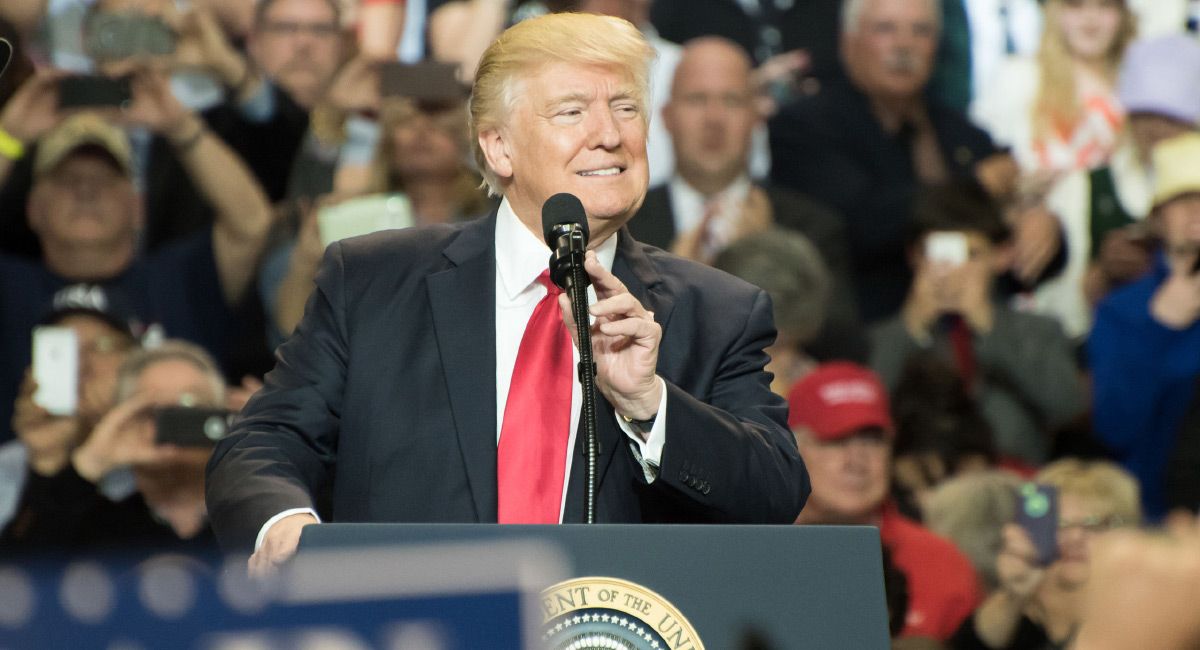“With malice toward none, with charity for all...let us strive to...achieve...a just and lasting peace among ourselves....” So said Abraham Lincoln in his magnificent second inaugural address just weeks before his assassination nearly 155 years ago. Today’s harsh divisions between the Republicans and Democrats make Lincoln’s plea relevant today, and the Trump Administration budget for fiscal year 2021 demonstrates the extent of the ideological warfare between the major political parties with respect to higher education.
The Trump budget is viewed by the denizens of the D.C. swamp as austere, but it maintains the trillion dollar deficits amidst under four percent unemployment that characterize the current era, and despite exceedingly rosy economic assumptions, does not foresee balanced budgets anytime soon. But it has a distinct austerity vibe to it when applied to education. For example, the recommended budget for the U.S. Department of Education is down $5.6 billion (7.8%) over current spending levels.
The Administration must be reading this blog. To deal with dysfunctional federal student financial assistance programs, it proposes putting more stringent limits on PLUS loans to parents, ending student loan forgiveness for those with public sector jobs, restricting somewhat the amount graduate students can borrow, ending the Stafford subsidized loan program, reducing the federal Work Study program, etc. Needed reforms in my opinion. Additionally, the Trump budget proposes reductions in research funding for agencies such as the National Science Foundation, Department of Energy, and the National Institutes of Health.
Contrast this with Democrats’ proposals. Rather than restricting federal student financial assistance, they wish to expand it significantly, including big increases in Pell Grants. Some Democratic leaders want to move towards “free college,” where the federal government makes college tuition free for at least community college if not four-year college students. And expand research funding. Some are advocating complete federal student loan forgiveness.
It is the equivalent of Democrats saying the sun will rise in the east tomorrow, while Republicans say that it will rise in the west. Completely opposing views. I once wrote a column called “Three Cheers for Gridlock,” suggesting that when radically different ideas are in play, failure to reach agreement keeps extreme positions from being adopted. That certainly is going to be the case in 2020—absolutely nothing radical is going to happen in higher education policy. Radical Trump budget cuts are dead on arrival, and given the complete lack of fiscal discipline in both parties (one unfortunate area of bipartisan agreement), I suspect the final budget will at least modestly increase total education spending.
Economists are lousy at economic forecasting, much less political prognostication. Nonetheless, as an aging tenured professor with little to lose, I think it is highly unlikely that one political party will control all of government next year. The presidency is clearly up for grabs and could go either way, although, as Democratic guru “Ragin’ Cajun” James Carville says, Trump will win if the Democrats nominate one of the radicals like Bernie Sanders or Elizabeth Warren (who now appears all but dead politically). Otherwise, it could go either way. The odds are 80% the Dems will control the House but also 75% that the GOP will control the Senate. The probability of 100% control of government by either party is small, meaning incremental change in higher education policy is more likely than truly substantive revisions until at least 2023.
One reason why a cost-sensitive policy closer to the GOP position may prevail ultimately is that decades of fiscally irresponsible behavior by both parties might lead to an economic crisis forcing the U.S. into fiscal austerity—a gentler version of what happened to Greece several years ago. Taxes may go up some and spending increases will cease for a time.
If that happens, higher education will be a big loser. Maintaining popular but fiscally shaky Social Security/Medical Care entitlements is politically vastly more popular than maintaining a bloated budget for the U.S. Department of Education or even costly student loan and grant subsidies. Declining public support for higher education, pronounced among Republicans but also surprisingly strong among Democrats, will prompt some fiscal brakes, slowing the fueling of bloated university bureaucracies and their enablers.













